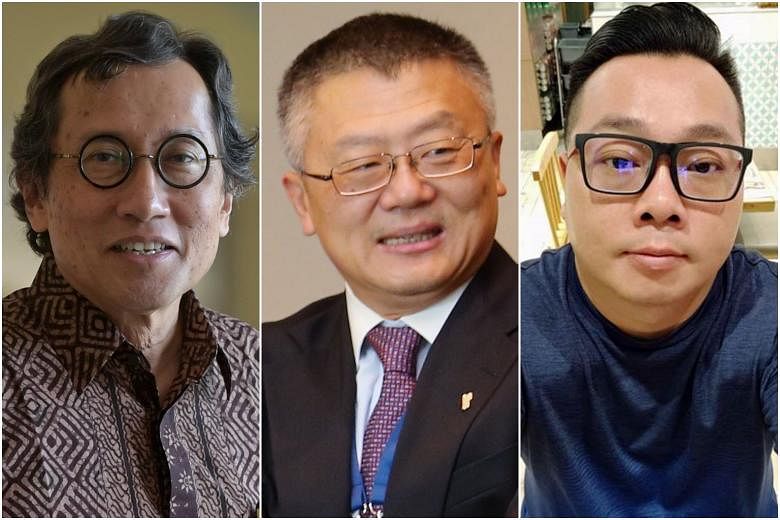The fact that Chinese-American academic Huang Jing went to work in the United States after being expelled from Singapore for being an agent of influence was a "tacit admission" that he may have been working for China, retired diplomat Bilahari Kausikan said.
Although the Singapore Government never explicitly said which foreign country Dr Huang was said to have been working for, going to the US would have proven nothing if he had been an American agent, Mr Bilahari said yesterday.
"In fact, going to the US does not prove he was not working for China either. Huang Jing committed no offence against the US - he was working against Singapore interests, not US interests," he added.
"But he soon left the US and went to China where he is now employed in a senior academic position in Beijing. Would he dare go to China if he had been working for the US or Taiwan, as some have claimed?"
Mr Bilahari was responding to Dr Huang's recent comments carried in the Hong Kong-based English-language daily, the South China Morning Post (SCMP).
Dr Huang denied having recruited Singaporean Dickson Yeo Jun Wei as a Chinese spy and demanded Mr Bilahari prove his accusation or withdraw it. He has also consistently denied the charges that got him expelled from Singapore in 2017.
Last Friday, Yeo pleaded guilty in a federal court in Washington DC to one count of acting within the US as an illegal foreign agent under the direction of Chinese intelligence officials.
The Straits Times contacted Dr Huang yesterday, but he declined to comment further on the matter.
"Singapore is a country known for its rule of law, what proof does he have?" the SCMP quoted Dr Huang as having said on Monday.
Mr Bilahari had earlier said that it is "not unreasonable to assume" Yeo was recruited or talent-spotted while he was a PhD candidate at the Lee Kuan Yew School of Public Policy (LKYSPP) where Dr Huang was his supervisor.
Dr Huang, who is now a dean at the Beijing Language and Culture University's Institute of International and Regional Studies, told SCMP: "I knew Bilahari when I was in Singapore and have no grudges against him. His comments against me are nonsense and unreasonable.
"He said 'it is not unreasonable to assume' that I had introduced Yeo to Chinese intelligence. What does he mean by that? How can a diplomat say that?"
Dr Huang also told ST on Sunday that he was shocked by Yeo's conviction and had not seen him since late 2016.
Yesterday, Mr Bilahari said Dr Huang's denial was unsurprising.
But he added that he could not take Dr Huang's comments seriously as he has "never credibly explained" why Singapore expelled him if he was innocent.
While he acknowledged that his claim that Dr Huang had recruited Yeo was speculation, Mr Bilahari said he does not believe in coincidences.
"That Huang Jing was expelled as an agent of influence has absolutely no connection with his former student arrested for working for Chinese intelligence is far too much of a coincidence," he said.
Mr Bilahari also noted that Dr Huang is a US citizen who also holds Chinese citizenship, despite the fact that China does not typically recognise dual nationality.
Said Mr Bilahari: "It is true that in practice, many Chinese citizens secretly hold dual nationality. But Huang Jing was a high-profile case and in fact he publicly boasted of having dual nationality.
"It defies the imagination that the Chinese authorities would overlook such a high-profile case."


